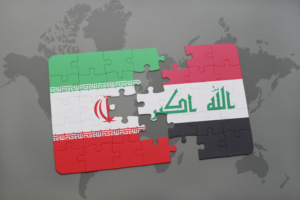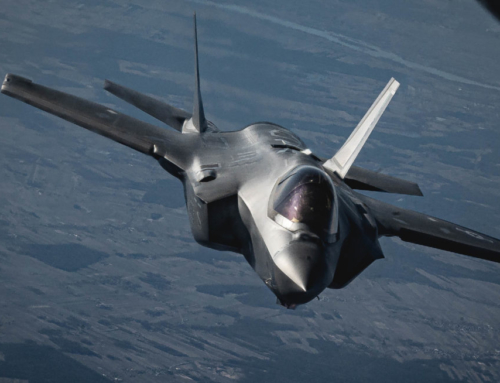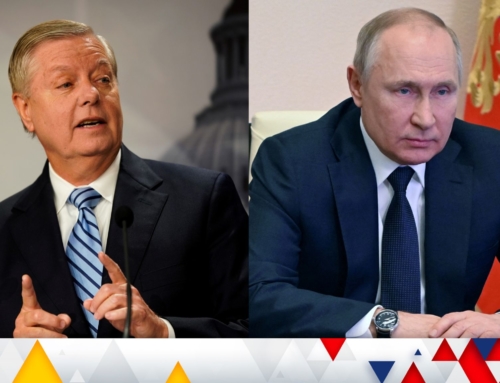
Royalty-free stock illustration ID: 455268238
The world woke up yesterday to a bunch of maniacs chanting “Death to America” outside the US Embassy in Iraq, and given what I’ve seen on TV, with references to Benghazi and the seizure of the US embassy in Iran in 1979, I’m pretty sure that the average American has no hope of knowing what’s actually happening. Watching the news, you’d think that Iraq is either hell bent on kicking us out or killing us, but that’s not the case. Unfortunately, the problem set is more complex, involving more than just Iraq, and it starts in 2011 (Okay, it REALLY starts in 1991 with the original Gulf War, but for today’s crisis, it’s 2011. Yes, I know that if we hadn’t invaded in 2003, we wouldn’t be here, but we have to start somewhere, and it is what it is.) Buckle up. It’s a little bit of a story, but it’s really not that hard to understand, which makes me wonder what all the talking heads do for a living, because they’re sure as shit missing the narrative. In a nutshell: We want to deter Iran without losing our allies in Iraq – and from what I can see –we’re making some mistakes.
In 2011 Barrack Obama ceased all combat activities in Iraq, pulling out United States troops and leaving a giant vacuum of power that Iran rushed to fill. The Shia block in the government, under the sway of Iran, became very heavy handed and crushed Sunni protests over petty grievances in the Al Anbar province. The Sunni protests grew, and the Shia-dominated government became more oppressive. Enter ISIS, a Sunni extremist group. The Sunnis in Al Anbar didn’t necessarily side with ISIS, but they were more than willing to let them run amok because they were targeting the Shia government. The enemy of my enemy, and all that. ISIS became an absolute monster which took over Mosul, the second largest city in Iraq, and there were fears it was going to take Baghdad. While the United States dithered about what to do, Iran saw an opportunity and stepped into the breach, training and equipping militias to fight ISIS. Militias that to this day are completely beholden to Iran for their very existence.
During the ISIS campaign we sided with the militias because, yet again, the enemy of my enemy… The militias fought well, but there was always tension because of Iran’s control. After ISIS was defeated, the Iraqi government had a problem, namely, what to do with the militias Iran had formed, trained, and equipped? They weren’t part of the national security structure of the Iraqi state, and they were most definitely under the sway of Iran. The Iraqi government decided to try and coopt them, putting the militias officially under the national security structure, which is ostensibly where they remain today – but they don’t listen to the Iraqi security establishment. Most listen to Iran, but not all. There is a faction of Iraqi nationalists who have their own militia and who don’t like Iran calling the shots, which is a fracture that could cause the collapse of the entire Iraqi government.
Fast forward to today, and our maximum pressure campaign on Iran through sanctions. We’re basically slowly squeezing the life out of Iran, which has caused strife in Iran and sparked protests on its home turf. As I explained in another blog, though, Iran is not impotent. It’s struck the oil fields of Saudi Arabia, put mines on tankers in the straits of Hormuz, and shot down a US Global Hawk drone. Iran has plenty of options available to it to cause mischief, and it’s using them in Iraq.
The regime has had a malign influence on Iraqi politics since we left in 2011, and because of it, the grass roots of the Iraqi population are sick of Iran. They have started to protest about Iranian influence in Iraqi politics, to the point that it’s making noise on the world stage. Iran cannot tolerate this. It cannot be the “bad guy”. At first, it directed the PMU militias to attack the protestors – using the strong-arm tactics it executed in it’s own country – which it did, but that only exacerbated the anti-Iranian sentiment. Iran decided that it needed something else, and it turned to America to provide it. Using the Hezbollah militias in Iraq, it has attacked U.S. bases more than eleven times in the past few months—all of the attacks designed for one thing: A kinetic response.
Finally, Iran managed to kill an American contractor and wound four other service members, and sure enough, we launched airstrikes against the militias inside Iraq, which was an incredible unforced error. Now, the same protesters who were in Tahir Square denouncing Iran yesterday, are denouncing American imperialism today. In no way did our airstrikes deter any Iranian attacks against our bases, but they most likely turned the average Iraqi against us. We opine on the news about using airstrikes as a just response to the proxy force’s rocket attacks, and in a vacuum, it is, but in the greater scope of the political environment, it is a potential disaster in the making.
To put it in context, we had a Saudi national pull out a pistol and kill several people in pilot training at Pensacola, Florida a couple of months ago. The outcry was tremendous about canceling all foreign training and getting rid of all Saudi nationals. Now imagine if that same Saudi national got in an F 15 and flew across the United States blowing things up?
That’s what Iraq saw.
Make no mistake, Iran wants us out of Iraq. We are the one thing stopping them from attaining complete hegemonic control from their borders to the levant. The regime wants a land bridge from Iran to Syria, whereby it can reinforce Hezbollah in Lebanon and own the entire arc of the Middle East, and the only thing preventing that is United States influence inside Iraq. It can’t defeat us force-on-force militarily, but the regime most certainly can asymmetrically. If it can get the Iraqi population to hate us – to demand we leave – it wins, which is exactly its strategy.
Unfortunately, we don’t have a lot of leverage in this fight. The PMU’s can attack us with impunity, but if we strike back in Iraq, we engender the very hatred we want to avoid. We have a dilemma of getting punched in the face repeatedly or getting vilified for defending ourselves. It’s a Hobson’s choice that is too narrow in scope. Iran is attacking us asymmetrically, and we choose to fight back in its chosen arena, which is a mistake. We’re looking at the wrong problem set.
Iran is behind the Hezbollah militia attacks, but we went after the direct cause of the attack – the Hezbollah militia in both Iraq and Syria, which played right into Iran’s hands.
As I’ve said before in other blogs, deterrence theory isn’t that complicated. You must threaten something the enemy holds more valuable than the action you’re trying to deter. Threatening the Hezbollah Iraqi militia doesn’t do a damn thing against Iran. It could care less how many of them we kill, because we’re playing into its “imperialist American” narrative. Far from deterring them, we’re helping Iran’s cause. If they want to play the proxy game, then so should we.
We need to threaten what they hold dear, and we don’t need to do it in an overt way. No huge proclamations on twitter, no grand bluster of fire and fury. This is a back-door war, and we should fight it just like Iran. If it conducts rocket attacks against our bases, injuring Americans – which will happen again –what should we do? Strike more militia targets? No. We should attack the leadership in Iran. I don’t mean actually assassinate anyone, because the protests there are doing exactly what we want and a strike such as this could be counter-productive if we cheer about it, but something close – in baseball terms, give them some chin music from the pitcher. Let them know we aren’t messing around, but do it like Israel – without saying a word.
They’ll get the message. You attack us in Iraq through your proxies, and we aren’t coming after the militias. We’re coming after YOU. The next missile is coming through the roof, and we don’t need to get on the news to do that. Let the strike speak for itself. In fact, don’t even acknowledge the strike. Use Iran’s own playbook against it. Was it Israel? Saudi Arabia? The United States? Who knows? But IRAN will know. Turn the whole problem set upside down, like they’re doing to us. Rockets hit our bases in Iraq? Iran says, “That’s not us…I don’t know why the US is so mad. Maybe it’s just because they’re the evil empire.” Really? Turnabout is fair play. Cruise missiles hit the center of Tehran and we say, “What happened? That wasn’t us. Maybe it’s somebody who doesn’t like what Iran is doing. Maybe…just maybe…whoever it is is serious about Iran’s malfeasance.”
In the end, we make a mistake trying to fight force-on-force in an asymmetric battle. It’s not the militias we’re fighting, it’s Iran – and if we want to send a message to them, we need to send it to THEM, not their proxies in Iraq.









The calm rational voice of reason backed with real world experience. Deadly combination.
Your observations seem so obvious yet the button pushers seemingly cannot see it?
I would love to hear your thoughts on why the leadership can get it so wrong. And continue to. Surely it’s more than just national political agendas.
So was taking out Soleiman in line with what your thinking or was it too much?
Trump tweeted out a flag. Lindsey Graham’s been tweeting threats to Iran for hours. Meanwhile, we have 82nd, Rangers, and others heading to Iraq.
Someone joked that Soleimani’s operation code name was “Archduke Ferdinand”, then said he felt bad juju just saying it.
Ugh. That protest WASN’T “Benghazi”…to me, this is just Trump’s stupid way of saying, “Welcome to 2020, an election year!”
Pretty sure the Iraqis already hate America after their country was fucked in half. The war did more for recruitment efforts than UBL could have ever done on his own. How about we take Americans out of the Middle East and let the Israelis fend for themselves?